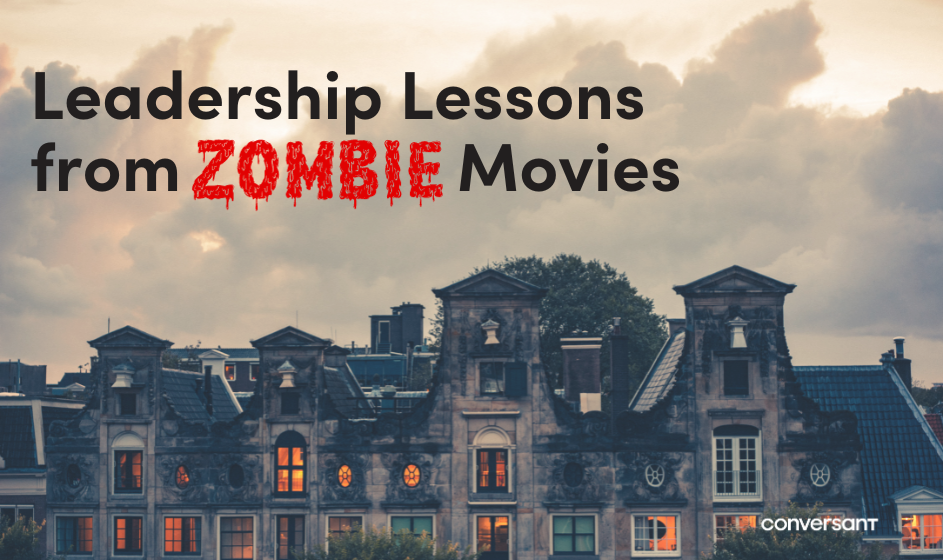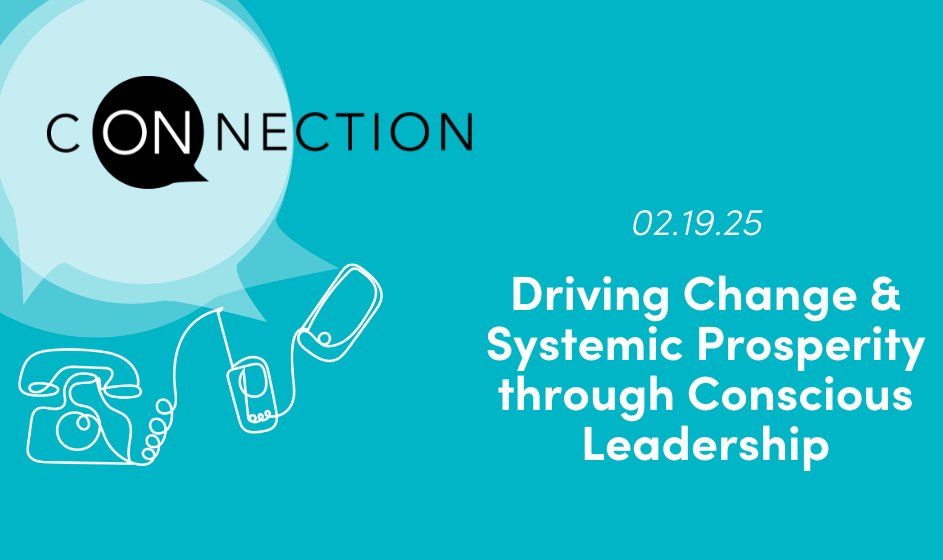I have a secret love of zombie cinema, and while that isn’t usually relevant at work beyond “what have you been watching lately?” watercooler chit chat, I’ve been thinking – maybe zombie stories actually have a thing or two to teach us about leadership, growth, and development.
The best zombie movies, in my opinion, are the ones that offer more than just fake-blood-saturated jump scares. My favorites have a commentary about our culture and the human condition woven throughout – about how contagious “bad” behavior can be, our capacity to hurt and dehumanize one another, the numbing mindlessness we can so easily sink into as we walk through our daily lives, what we’ll do when we’re focused on survival at all costs, and the resiliency of human hope. Most feature storylines that are pretty dark and foreboding (my recent favorites are of course The Last of Us and All of Us Are Dead). But a few weeks ago I watched the movie Warm Bodies, a zombie apocalypse book adaptation that came out in 2013. It’s a funny, heart-warming take on the zombie story that has a lesson to offer about recovering our humanity, and our capacity for change.
Without giving too much away, Warm Bodies is about the unlikely connection between a zombie and a normal human being. Initially the human assessment of zombies (referred to as “corpses”) is that they are brain-dead, violent, lost creatures beyond saving. As the human girl, Julie, is exposed to the zombie protagonist more and more, she can’t ignore the surviving humanity in him, and they develop a friendship that just may offer some hope in a bleak and deeply divided world.
In one scene, Julie says to her zombie counterpart, “It must be hard, being stuck in there. I can see you trying. Maybe that’s what people do – we try to be better. Sometimes we kind of suck at it. But I look at you and you try so much harder than any human I know.”
I think this is exactly how it feels to be someone that knows they aren’t showing up the way they want to, even with the best of intentions. We may not see it on the outside, but that person may be trying really hard to be better. Self-directed change can feel like an uphill battle, and when we feel written off by the people around us, like we aren’t capable of changing, that makes it almost impossible to want to keep trying. Unfortunately, we write people off all the time. We give up on one another, and we give up on ourselves. We fall into the trap of believing that people really can’t change, and so we surrender to our subpar zombie lives.
Lately, most people I talk to are having a hard time figuring out how to “be better.” This could mean better managing stress and well-being, increasing productivity, being a better manager, building habits, feeling happier and more fulfilled, etc. It’s also true that most people I know would say they have someone in their lives they wish would be better – a coworker, partner, sibling, direct report. We want change, but there’s a gravitational pull that keeps us in the orbit of how we’ve always been and what we’ve always done. What may seem like an obvious and easy shift to others may feel nearly impossible to us.
Growth and development, then, are not easy tasks. In an organizational context, leaders want their employees to develop key skills and competence, and often get frustrated by their inability to fast-track that improvement. It is frustrating – “if only they would do the thing I need them to do! Isn’t it obvious to them? Why don’t they get it? It really isn’t that hard.” The humor here is that it’s a leader’s primary job to support their teams in their development and performance, meaning if a leader is experiencing this frustration, there may be opportunities for them to develop their leadership skills. There’s shared responsibility in growth, because we all make it easier or more difficult for the people around us to “be better”.
Great leaders are conscious of the environment they’re creating for those they lead, and whether that’s conducive to growth and development or not. I’ve seen leaders give feedback and request that an employee shift behavior or develop in some particular way, but because they’re mostly focused on the behavior they don’t want to see, they aren’t noticing all the ways that person is trying to improve. They notice the shortcomings and the missteps more than the well-intended effort and miss opportunities to nurture and support that development as a result.
Managers can unintentionally be contributing to an environment that stifles growth and makes it harder than it needs to be. This is largely unconscious – we want people to improve and for them to change certain behaviors, but we’re afraid they won’t. So, we stay on high alert for evidence that they aren’t making an effort. If you’re familiar with our work, you know a foundational principle is that it’s more valuable to focus on what we’re for rather than what we’re against. In the case of a manager asking their direct report to work on a developmental focus, the leader is for the behavior they want to see. When that becomes the leader’s focus, they’ll notice signs of improvement more readily, or new opportunities to support that person in their development. If they focus on what they don’t want, that’s what they’ll notice. Imagine your own effort to make a change in your habits, mindset or behavior – how would it feel if someone was watching you and looking for signs that you’re not getting better? Pretty awful, right?
In Warm Bodies, [SPOILER ALERT] the zombies not only have some of their humanity remaining, but they discover that it’s actually possible to reverse their zombification. That change hinges on someone noticing, appreciating, and nurturing the humanity they had left. Someone seeing them for the glimmers of good, well-intended behavior, not just the bad. That acknowledgement and care allowed them to change, when the rest of the world had written them off. Just like the zombies in Warm Bodies, most of us want to change and are just struggling to make it happen – battling old habits and beliefs and likely failing some days.
If you want someone to change, you have to actually believe that they can. Leaders can give feedback and suggest developmental direction, but unless they’re committed to supporting that shift and staying on the hunt for evidence that person is trying – acknowledging and celebrating little steps in the right direction – they can’t expect an ideal outcome. At a minimum, leaders can be conscious of where they might be getting in their own way – “How might I be making it harder for the people I lead? What can I do to create an environment that nurtures their growth and development? What barriers can I remove for them?”
Leaders can’t do all the work of course; it does take engaged and committed effort on the part of the employee. But don’t miss the signs they’re making an effort. Don’t accidentally discourage their development and dampen their confidence. Change is hard, and compassion is key. Leaders that practice presence, focus on what they’re for, and commit to being a partner and supporter of the growth of those they lead will see surprising (and maybe even miraculous) results.




